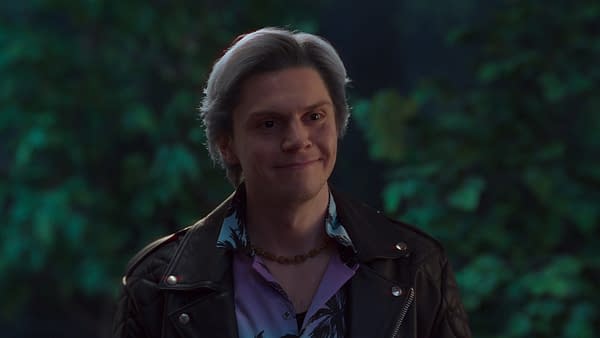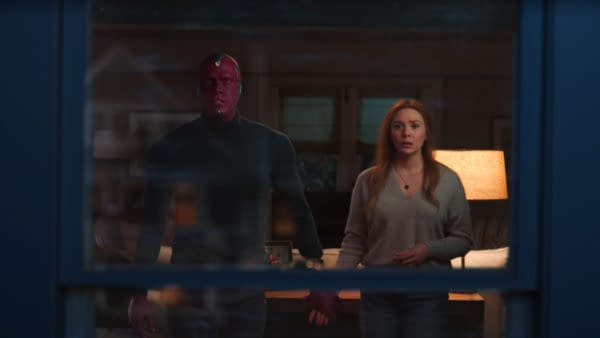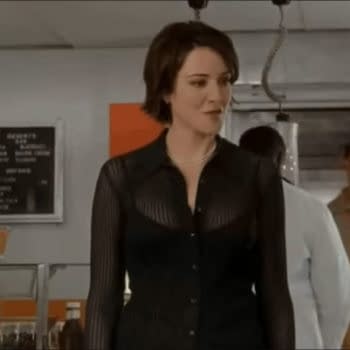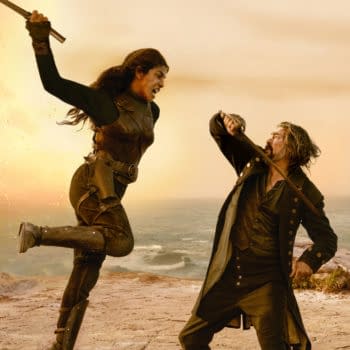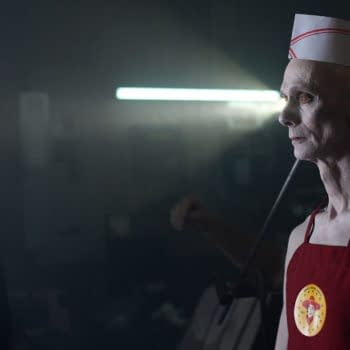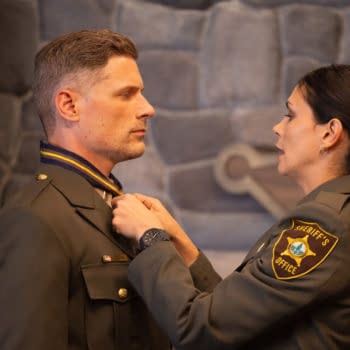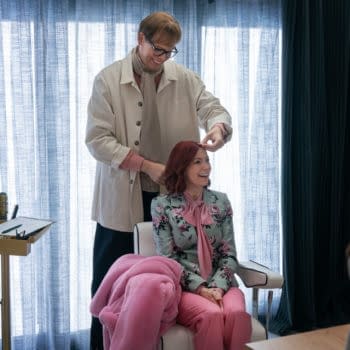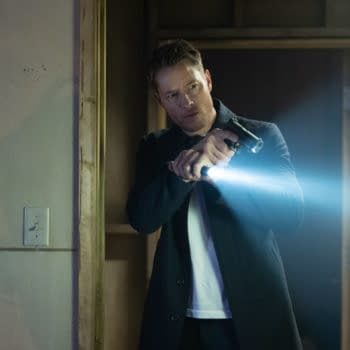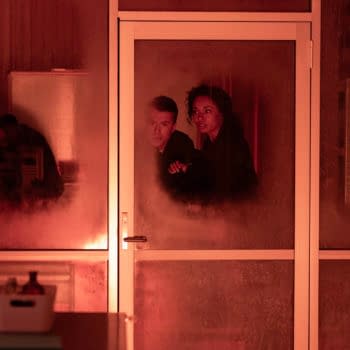Posted in: Disney+, Marvel, Review, TV | Tagged: bleeding cool, cable, Debra Jo Rupp, elizabeth olsen, emma caulfield, evan peters, Fred Melamed, kat dennings, kathryn hahn, paul bettany, randall park, streaming, television, Teyonah Parris, tv, WandaVision
WandaVision Review [Spoilers]: Sugar, Spice & Everything That Sufficed
With WandaVision in the books with an episode non-imaginatively titled "The Series Finale", let's look at Marvel Studios' first television series on Disney+. The show starred one of the more underdeveloped Avengers in Wanda Maximoff (Elizabeth Olsen) and Vision (Paul Bettany), which largely served as auxiliary characters in the grand scheme of things. For a little background, Wanda and her brother Pietro (Aaron Taylor-Johnson) were originally introduced in the post-credit scene of Captain America: The Winter Soldier (2014) as human experiments from the mind stone. They were associates of Ultron (James Spader) in Avengers: The Age of Ultron where Vision officially made his debut with the former AI of JARVIS occupying the intended new vessel for the megalomaniacal android. There will be spoilers to get the intention and exposition behind the lore that unraveled.
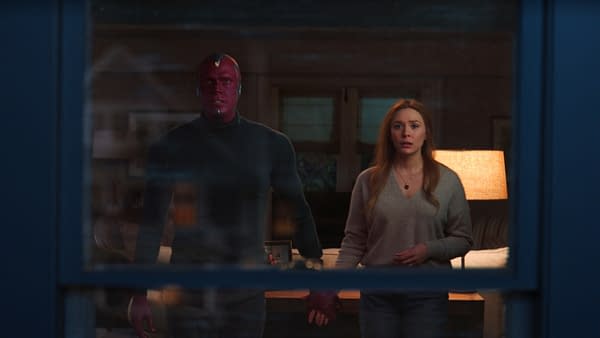
The series became an origin story of three characters with Wanda as the Scarlet Witch on the back end, Monica Rambeau (Teyonah Parris), and the new incarnation of Vision in his white form (his second in the comics). While WandaVision uses its theme of American sitcoms, the comedy from them is largely an afterthought when you get to the meat of the series. At its core, it's about how one woman deals with her PTSD and using her grief on the unwitting inhabitants of a small town. Sure, we do get the obligatory superhero exposition and fights between the hero and the "evil" version of the said hero as thematic it is with the Marvel Cinematic Universe.
WandaVision Reinforces MCU Duality Theme
The MCU embraces its duality like a heart on its sleeve and who can blame them? By the time we reach the series' conclusion, presumably, we get the quality choreographed fight scenes between the principal players. Ultimately, the series is built on the strength of the characters it emphasizes in Olsen, Bettany, Parris, Kathryn Hahn, Randall Park, Kat Dennings, and Josh Stamberg. Other additions like Debra Jo Rupp, Fred Melamed, and Emma Caulfield are fine for what they're asked to do, but just more recognizable names that don't "enhance" the series rather than fit the setting of the episode they're featured in. Rupp's Kitty Foreman from That 70's Show alone would fit in most eras of sitcoms.
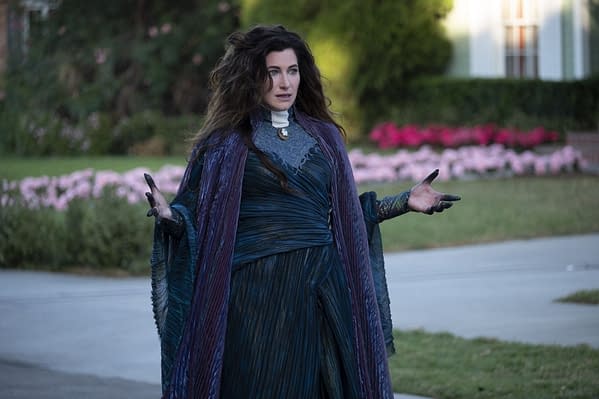
As far as the "shock" casting of Evan Peters goes, it felt like it should be more than a mere nudge and a wink to the audience who followed X-Men from FOX given the greater multiverse subplot Marvel was doing. It is what it is. Jac Schaeffer and Matt Shakman did a wonderful job turning in something unique and original even if it's ironically borrowed from within pop culture archives to achieve the experience. The most surprising aspect of WandaVision is how well it balances its darker overtones with sprinkles of levity, humor, and genuine heart even if it's some of it is derived from contrived sitcom tropes. It's almost a shame that we're going to a more traditional formula when The Falcon and the Winter Soldier comes out.
